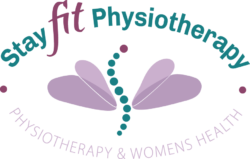Women's Health
Women face unique issues that require expert knowledge delivered by an experienced and understanding Women’s Health Physiotherapist.
At StayFit Physiotherapy I have 13 years experience working and supporting women to improve their health and wellbeing so that they can live their lives with confidence.
What I can help you with
What I can help you with
Benefits of working with a womens health physio
The benefits of working with a Women’s Health Physio is that you will be discreetly assessed, understand why you’re experiencing your symptoms and how to improve and manage them.
I use a combination of techniques to provide the best treatment for you as an individual.
Benefits
- Reduced pelvic pain
- Improved bladder control
- Management of urgency & stress incontinence
- Stronger pelvic floor
- More confidence
- Better sex life
- Participate in sport
- Not having to buy pads
